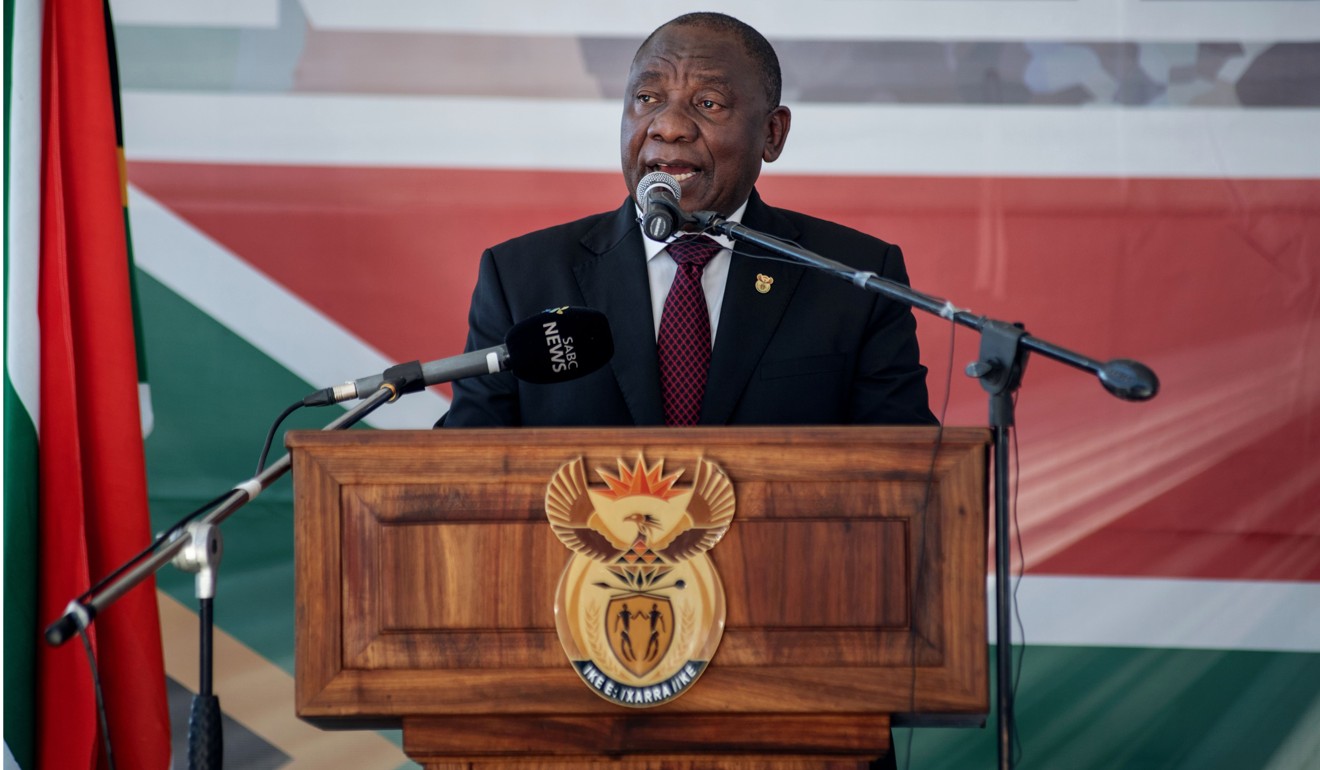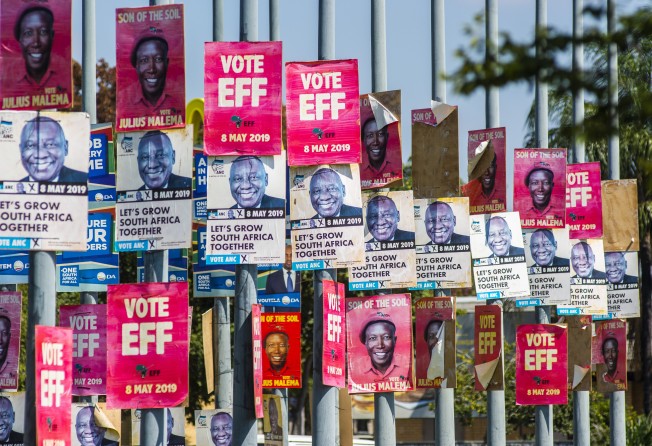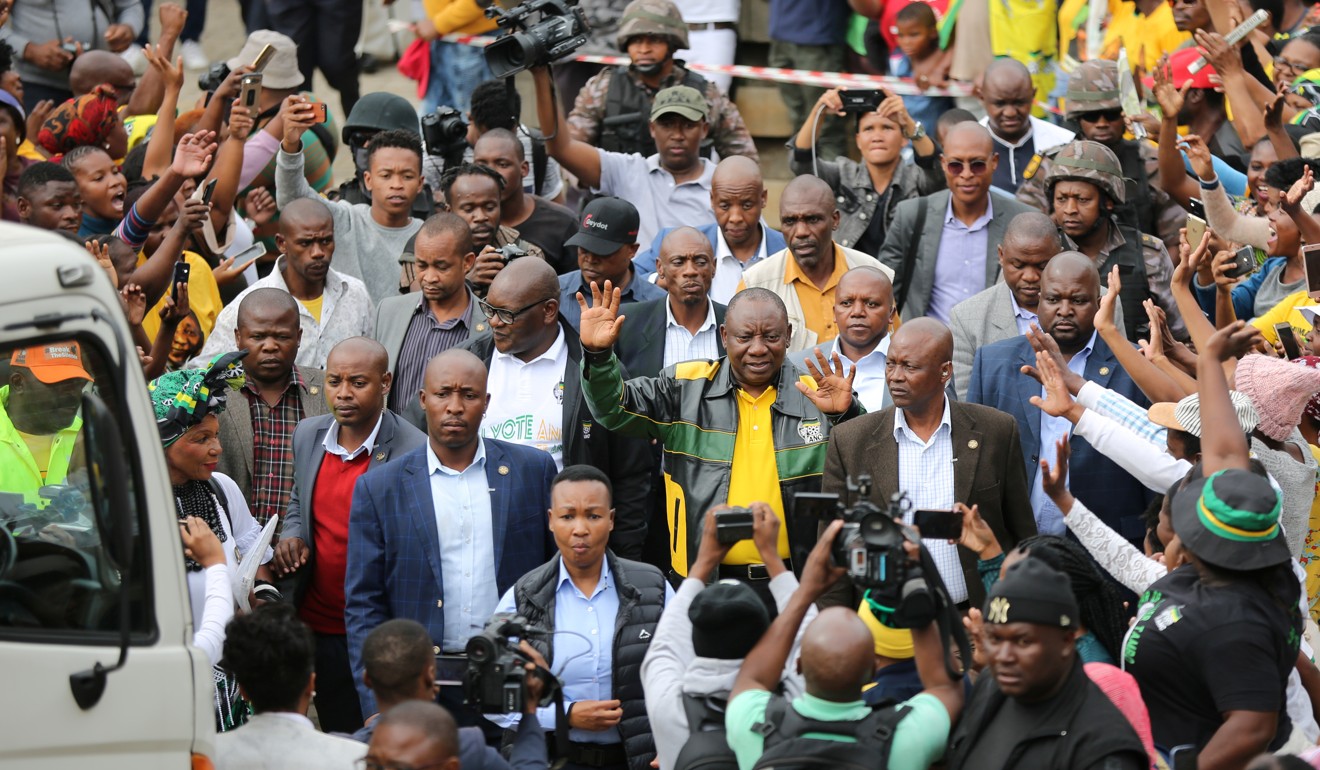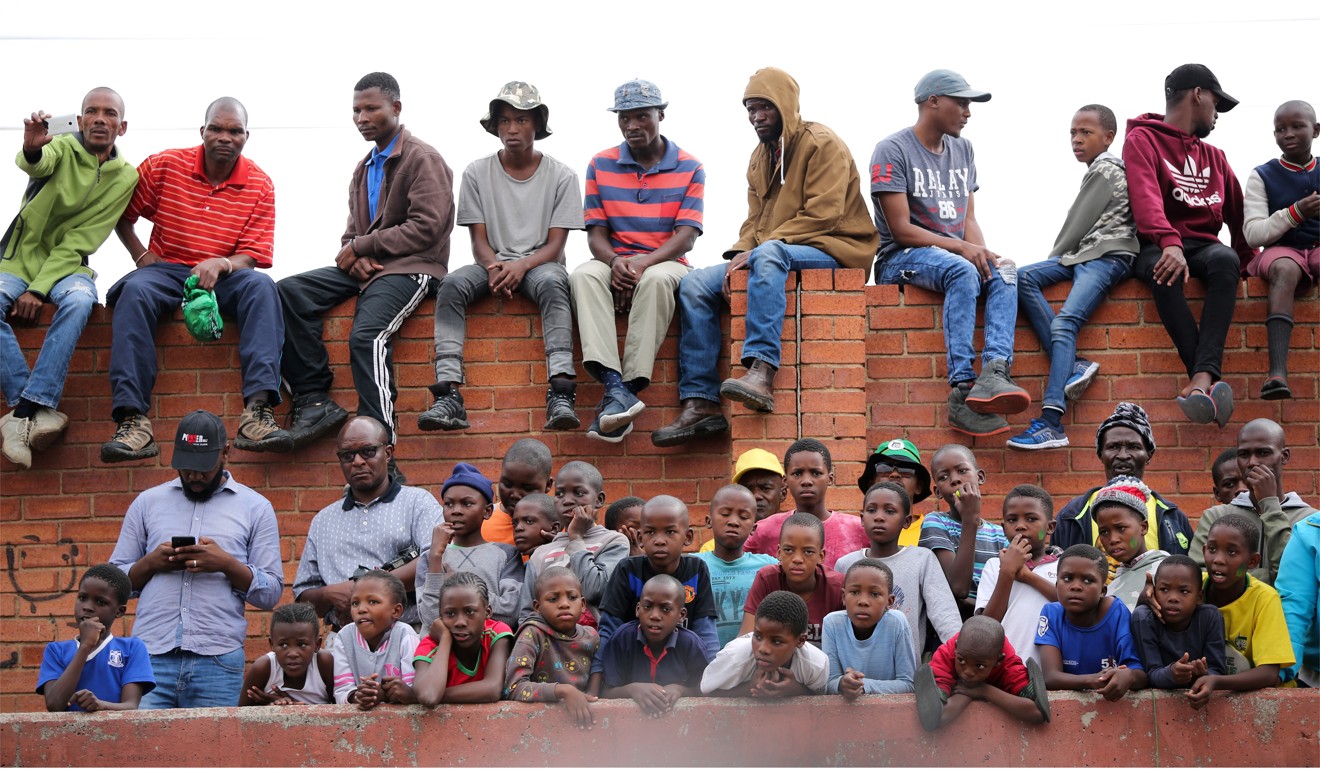
How the South Africa election is being shaped by xenophobia and apathy
- ‘Militant’ party expected to make gains as impoverished voters shun the ANC over a lack of improvement in employment and living standards

There are sinister forces trying to undermine South Africa’s national unity through racism and attacks on foreigners, according to the country’s President Cyril Ramaphosa.
That was his view on Freedom Day on April 27, the 25th anniversary of the first post-apartheid elections.

Ramaphosa was responding to an increase of racist attacks before the May 8 election which his African National Congress (ANC) party looks set to win, although probably with a reduced majority.
Racism and xenophobia have become increasingly common, largely driven by rising frustration among millions of people who are still disadvantaged despite promises of a “better life for all”.
The targets include Chinese but they are mainly people from elsewhere in Africa – impoverished citizens of neighbouring countries like Zimbabwe or fleeing conflict in the Democratic Republic of the Congo or Somalia.
This immigration has caused deep resentment among South Africa’s impoverished and work-starved communities.
“On this Freedom Day, we have much to celebrate,” Ramaphosa told the crowd in Makhanda, Eastern Cape province. “Today the children of our land, black and white, can learn in the same schools and study in the same universities and colleges. When democracy came, we did not sink into the abyss of vengeance and retribution.”
“Despite the progress we have made, we are still confronted by sinister attempts to undermine the unity of our nation through acts of racism, through attacks on foreign nationals and in the open display of the old South African flag ... We reject racism … We reject attacks on those who have sought refuge in our country, and we reject violence, insurrection, and disregard for the rule of law.”
Ramaphosa admitted the main cause of the problems was deep socio-economic inequality.
“There are great divisions between rich and poor, between urban and rural, between men and women, between those with jobs and those who are unemployed, between those who own land and those who were deprived of it,” he said.

However, the choice of topics for Ramaphosa’s speech, barely a week from elections, was not accidental.
Pre-election rhetoric from fringe parties has been labelled racist, with one party facing possible exclusion from the poll because of “anti-white” policies.
Xenophobic attacks in the densely-packed Johannesburg suburb of Alexandra two weeks ago set in motion a rapidly spreading grass roots “no vote” campaign against the ruling party, accusing it of failing to provide basic services to the country’s impoverished millions.
Unemployment is officially at 26 per cent but thought to be higher as many jobless are said to have stopped trying to find work. Struggling South Africans are also blaming the job shortage on foreigners.
With a low-growth economy, corruption in politics and a nationwide sense of gloom, voters are more uncertain about their political loyalties than ever.
A recent poll on the possible outcome on May 8, when some 26.7 million people cast their ballots, shows ruling ANC heading for 59-60 per cent and the opposition Democratic Alliance (DA) losing some ground, with a possible 20-21 per cent.
The poll predicts the Economic Freedom Fighters (EFF) with the largest growth, winning about 11-12 per cent of the national vote.

Complicating the picture are the “non-vote” movement and nearly 40 per cent of people who have not decided who to vote for yet.
At 75 per cent, the election has the lowest number of registered voters since 1994. The apathy is being led by hard-pressed South Africans, many of whom see their own economic hardship overriding national problems like corruption. Youths are particularly disenchanted.
With its appeal to radicalised young people, the EFF is on track to be the third largest party and a potential “kingmaker” in at least three of South Africa’s nine provinces.
If the pollsters are right, the DA will emerge as the biggest loser compared with the last few elections, when its support grew.
This is partly because some DA voters would rather back an ANC under Ramaphosa than take the chance of allowing in the more militant, and implicitly “anti-white”, EFF.
At the same time, middle-of-the-road voters may want to give Ramaphosa a strong mandate so he can continue his anti-corruption drive.